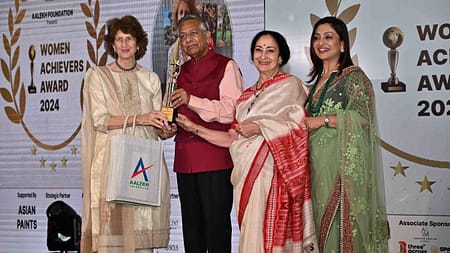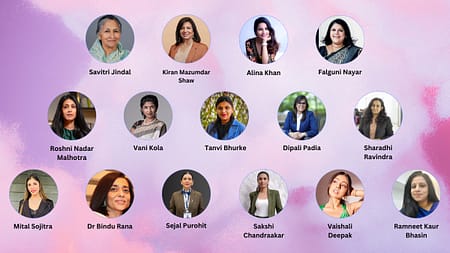For 22 long years, this institute is setting the benchmark for quality standards, design pedagogy and nurturing the youth with creative thinking, researching, and understanding their needs as budding designers. Building a solid team of professionals allowed expansion and made the institute a global establishment in terms of both growth and providing education. Archana Surana, founder and director of ARCH College of Design and Business talks about her vision in an interview with HE reporter.
How would you summon up the experience of 20 years?
The 22 years of setting up the institute have been a great roller coaster ride. Setting a benchmark for quality standards, design pedagogy and nurturing the youth with creative thinking has allowed researching and understanding the needs of students as budding designers. The accomplishment of nurturing design thinkers who are relevant to the industry and who, as professionals, are growing and furthering the nurturing process is rewarding. The most challenging part of the journey was establishing new pathways at undergraduate and postgraduate levels, as there was no established framework for a degree in design, and there was a lack of quality faculty for imparting design education. It opened up the opportunity to nurture designability in not only the students but also the teachers while creating valuable content for the right learning process. Building a solid team of professionals allowed expansion and made the institute a global establishment in terms of both growth and providing education.
What are your views on women’s empowerment?
Women empowerment is integrated into achieving a gender-equal world. Women are 50 percent of the population, so their role in society and every aspect of life is of paramount importance. Their economic contribution needs equal acknowledgment, be it as homemakers or leaders, or entrepreneurs. To create a harmonious world with no inequality, education for all is essential, focusing on women’s training and professional development and implementing supply chain, marketing practices, and enterprise development to empower women.
What are the consequences faced by you throughout the journey?
I have gained a lot of name, fame, and recognition throughout my journey as a design leader and entrepreneur. Still, it has also enabled me to grow as a leader in terms of taking ownership for both merits and demerits that have come through the years. But the design ecosystem the institute nurtures as an essential skill has resulted in students from all over the country and neighboring countries choosing to study at ARCH. In addition to opportunities to work closely with the community via social projects, design intervention projects, entrepreneurship programs, and industry collaboration for classroom projects and briefs, our journey consequenced into learners gaining a practical understanding of the content. It added to how design and design education is a holistic process.
From your point of view, what is the importance of Skill Development in certain fields?
Skills are a set of abilities that have application embedded in them, and each field requires a particular set of skills to be acquired and then applied to create innovation. A thriving career requires both hard and soft skills, which differ according to the stream. It is essential to keep skills at the core as they provide you with velocity in your learning and knowledge, leading to innovation.
Where do you see your company in the next few years?
The institution is a social enterprise to nurture lakhs of learners into creative thinking and change the emerging needs of society to create opportunities and address the wicked problems of the present. In the coming few decades, learners and their needs in different modes shall become essential as part of the learning system. With our core aim of imparting designability and creative learning, we would like to expand to other cities in the country with advanced learning opportunities in design for professionals from other disciplines to contribute to the research & development sector. Social and sustainable initiatives with creative entrepreneurship are the need of the hour. We shall keep our focus on creating a design ecosystem that will bring a more harmonious world.
Through more collaboration with foreign global institutes, we plan to create innovative products and services, create research and development opportunities, and increase student-faculty mobility for a broader exposure, all geared towards co-creation and collaboration to learn from both worlds.









